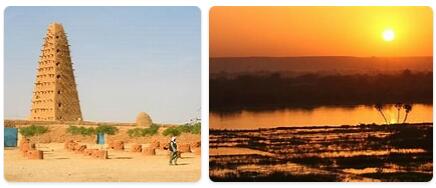The security situation in Niger remains worrying. The risk of terrorist acts is moderate to high. Western kidnappings have taken place in Niger, and the risk is still present.
Safety
Norwegian citizens staying in or planning to travel to Niger are encouraged to contact the Bamako Embassy for updated information and registration of travel via http://www.reiseregistrering.no/
The security situation in Niger remains worrying. The risk of terrorist attacks is moderate in the capital Niamey, but high in the Tillab¨¦ry region bordering Mali and Burkina Faso, as well as in the Diffa region bordering Nigeria and Chad. Organized crime related to the smuggling of weapons, drugs and people, etc., is widespread, especially in the north. Law enforcement in the north and other rural areas are generally very weak. Western kidnappings have taken place, and the risk is still present.
The crime that affects tourists is usually money-motivated in the form of theft and armed robbery. Events happen both daytime and evening. Travelers are encouraged to take reasonable precautions and especially when choosing a place of residence and location. Luggage should be kept under close supervision at airports, bus stations etc.
Niger is not particularly prone to natural disasters, but during the rainy season (May – October) the amount of rainfall can be so strong that floods occur. There may then be such heavy rains that roads are flooded and air traffic is hampered. Harmattan (very sandy desert wind) can cause temporarily closed airports in January – April.
The embassy in Bamako (Mali) is accredited to Niger and can be contacted on +47 23 98 28 00 or +223 754 30 325 in crisis and emergency situations. 8-16 Monday-Thursday and 8-13 on Friday. Outside the opening hours of the embassy, the public can contact the UD’s 24-hour operating center on +47 23 95 00 00 or UDops@mfa.no

Entry
Please note that entry regulations may change. The Foreign Service is not responsible if the following information on entry regulations or visa requirements is changed at short notice. It is the responsibility of the traveler to ensure that travel documents are valid for entry and to familiarize themselves with the current entry rules for each country.
Norwegians must have a visa to Niger. One cannot expect visas to be obtained at border crossings. Visas can be applied for at eg. Niger Embassy in Berlin. This should be done well in advance of departure. Access to longer work stays in Niger must be checked with the employer or the client.
Vaccination cards must be brought on entry. When entering via Niamey airport, body temperature is now checked (forehead reading). People with a fever may be held back. This practice is sharpened with the spread of the coronavirus.
Health
Normally, yellow fever vaccine is required for entry. Other travel vaccines are recommended and should be checked by a doctor. Prevention tablets for malaria are recommended.
Water should be boiled and filtered. Fruits and vegetables should be washed in chlorine solution or similar. There are private clinics of acceptable standard for treating the most common diseases in the big cities. Hospitals abroad are recommended for more serious cases. Therefore, it is important to have good travel insurance. There are restaurants of acceptable standard in the larger cities.
For relevant travel vaccines, check the website of the Norwegian Institute of Public Health.
Practical information
The population of Niger is predominantly Muslim and the country follows Muslim holidays. There is generally no need to pay special attention to local customs and clothing, but female visitors are recommended to wear long or half-length skirts or trousers. However, it should be taken into account during religious holidays and stays at mosques around the Friday prayer.
There are severe penalties for crime, including drug possession and punishable by illegal import and export of goods.
Common administration and national languages are French. However, the local variants of French can be difficult to understand for a first-time visitor. In addition, there are a large number of other languages in Niger. The local main languages are hausa, djerma, drumming, tamashek and others.
There is 220 volt AC power. Voltage varies greatly and power outages occur frequently. There is mobile coverage in urban areas. However, the mobile network is overloaded, and it is often difficult to arrive. Break in conversation often occurs.
Banks and public offices are open from 5 p.m. 8 to 17. Shops are open in the evening and on Saturdays.
Niger has a predominantly cash-based economy, and credit card use is generally only possible at the large hotels in Niamey. However, the use of credit cards is not recommended due to. the danger of fraud.
Norway and Niger are in the same time zone (GMT +1). But when it is summer time in Norway, there is an hour time difference (Norway an hour ahead). According to allcitycodes, Niger area code is +227.
Climate; dry season November ¨C March and rainy season April ¨C October.
Public transport is not recommended. Car hire with driver is possible and should be booked in advance through reliable contacts.